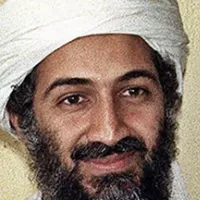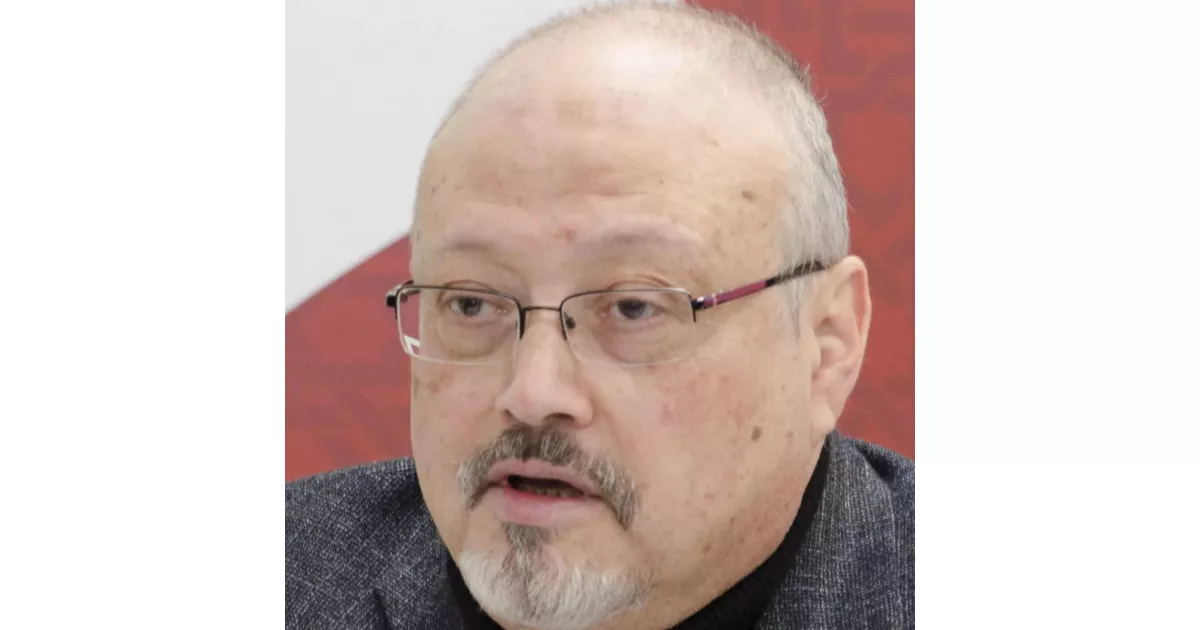"Jamal Ahmad Khashoggi, a prominent Saudi journalist known for his critical views of the Saudi government, was tragically assassinated on October 2, 2018, inside the Saudi consulate in Istanbul. Investigations revealed that the murder was orchestrated by agents of the Saudi government under the direction of Crown Prince Mohammed bin Salman, sparking international condemnation and scrutiny of Saudi Arabia's human rights record."
October 1958: Birth of Jamal Khashoggi
Jamal Khashoggi was born in Medina in October 1958.
1979: Khashoggi References Saudi Arabia's Pre-1979 Climate
In an April 2018 Washington Post column, Khashoggi mentioned Saudi Arabia's pre-1979 climate as a reference point for advocating for greater social freedoms and a less restrictive interpretation of Wahhabi traditions.
1982: Khashoggi Graduates from Indiana State University
Jamal Khashoggi graduated from Indiana State University with a Bachelor of Business Administration in 1982.
1983: Khashoggi Begins Career at Tihama Bookstores
Jamal Khashoggi's career began in 1983 as a regional manager for Tihama Bookstores.
1984: End of Khashoggi's Role at Tihama Bookstores
Jamal Khashoggi concluded his role as a regional manager for Tihama Bookstores in 1984.
1985: Khashoggi Joins Saudi Gazette and Okaz
In 1985, Khashoggi began working as a correspondent for the Saudi Gazette and as an assistant manager for Okaz.
1987: Khashoggi Transitions to New Roles in Journalism
In 1987, Khashoggi transitioned from his positions at the Saudi Gazette and Okaz to pursue new opportunities in journalism.
1990: Khashoggi Concludes Work with Arab Newspapers
Khashoggi concluded his work with various Arab newspapers, including Asharq Al-Awsat, Al Majalla, and Al Muslimoon, in 1990.
1991: Khashoggi Becomes Managing Editor of Al Madina
In 1991, Khashoggi assumed the role of managing editor and acting editor-in-chief of Al Madina, a position he held until 1999.
1995: Khashoggi's Encounters with Bin Laden and Criticism of Saudi Funding
During the 1980s and 1990s, Khashoggi met with Osama bin Laden in Afghanistan, interviewing him on several occasions. These meetings, often held in Tora Bora or Sudan, raised questions about Khashoggi's ties to Saudi intelligence. While covering the Afghan mujahideen, Khashoggi criticized Prince Salman, then-governor of Riyadh, for funding Salafist extremist groups, highlighting concerns about Saudi Arabia's support for certain factions.
1995: Khashoggi's Diplomatic Mission to Convince Bin Laden to Abandon Violence
In 1995, Khashoggi embarked on a diplomatic mission to Khartoum at the behest of the Saudi government. His objective was to persuade Osama bin Laden to renounce violence, with the promise of a return to Saudi Arabia and restoration of his citizenship. The meetings revealed a complex dynamic, with bin Laden initially claiming peaceful intentions but later becoming more defiant, demanding Saudi concessions and refusing to publicly denounce violence.
1997: Khashoggi Distances Himself from Bin Laden's Growing Radicalism
In 1997, Khashoggi expressed surprise at Osama bin Laden's increasing radicalization. As someone with knowledge of the Saudi royals' dealings with al-Qaeda leading up to 9/11, Khashoggi distanced himself from bin Laden following the attacks.
1999: Khashoggi's Tenure at Al Madina Ends, Joins Arab News
After serving as managing editor and acting editor-in-chief at Al Madina, Khashoggi's tenure ended in 1999. He then joined Arab News as the deputy editor-in-chief.
May 2003: Khashoggi's Brief Tenure as Al Watan Editor and Dismissal
In May 2003, after a short stint as editor-in-chief of the Saudi daily Al Watan, Khashoggi was dismissed by the Saudi Ministry of Information. His dismissal stemmed from allowing a columnist to critique Ibn Taymiyyah, an influential figure in Wahhabism, leading to Khashoggi's growing reputation as a liberal voice in the West.
2003: Khashoggi's Role at Arab News Concludes
Khashoggi's time as deputy editor-in-chief at Arab News concluded in 2003, marking the end of this chapter in his career.
2005: Khashoggi's Evolving Political Views
By 2005, Khashoggi's political views had evolved significantly from his time as a university student. He publicly acknowledged his past membership in the Muslim Brotherhood but emphasized his departure from the organization's ideology. He expressed his rejection of the idea of an Islamic state and his opposition to the Saudi religious establishment. Khashoggi also embraced the principles of the Enlightenment and supported the separation of religion and state.
April 2007: Khashoggi Returns as Editor-in-Chief of Al Watan
In April 2007, after a period of voluntary exile in London, where he served as an advisor to Prince Turki Al Faisal, Khashoggi returned to Saudi Arabia and was reappointed as editor-in-chief of Al Watan.
May 2010: Khashoggi's Continued Media Involvement and Al-Arab News Channel
Between June 2012 and September 2016, Khashoggi remained active in the media landscape, contributing opinion columns to Al Arabiya. In 2015, he launched the Al-Arab satellite news channel, based in Bahrain. Despite backing from Prince Alwaleed bin Talal, Bloomberg Television, and rumored support from the King of Bahrain, the channel was shut down within 11 hours of its launch.
2011: Khashoggi Expresses Sadness Over Bin Laden's Death
Following the death of Osama bin Laden in 2011, Khashoggi publicly mourned his former acquaintance. On Twitter, he expressed his heartbreak, acknowledging bin Laden's past bravery in Afghanistan while lamenting his turn towards hatred and extremism.
June 2012: Khashoggi's Continued Media Involvement and Al-Arab News Channel
Between June 2012 and September 2016, Khashoggi remained active in the media landscape, contributing opinion columns to Al Arabiya. In 2015, he launched the Al-Arab satellite news channel, based in Bahrain. Despite backing from Prince Alwaleed bin Talal, Bloomberg Television, and rumored support from the King of Bahrain, the channel was shut down within 11 hours of its launch.
July 2013: Khashoggi Criticizes Egyptian Government Following Coup
Following the July 2013 coup in Egypt that removed President Mohamed Morsi from power, Khashoggi became a vocal critic of Abdel Fatteh el-Sisi's government, condemning its human rights violations and suppression of opposition.
2015: Khashoggi's Continued Media Involvement and Al-Arab News Channel
Between June 2012 and September 2016, Khashoggi remained active in the media landscape, contributing opinion columns to Al Arabiya. In 2015, he launched the Al-Arab satellite news channel, based in Bahrain. Despite backing from Prince Alwaleed bin Talal, Bloomberg Television, and rumored support from the King of Bahrain, the channel was shut down within 11 hours of its launch.
2015: Patrick Cockburn's Commentary on Khashoggi Murder
In 2015, Patrick Cockburn, the Middle East correspondent for The Independent, wrote that while the killing of Jamal Khashoggi was widely publicized, it was not the worst act carried out by Saudi Arabia since 2015. He suggested that Saudi leaders believed they could handle the outcry over Khashoggi's death because they had faced less scrutiny for atrocities committed in Yemen.
2015: Khashoggi Criticizes Saudi Crackdown on Dissent and Support for Women's Rights Activists
Khashoggi used his platform to criticize the Saudi government's crackdown on dissent while also expressing support for women's rights advocates, particularly those like Loujain al-Hathloul who was recognized as one of the most powerful Arab women in 2015.
February 2016: Khashoggi Criticizes Iran's Sectarianism in the Region
In February 2016, Khashoggi wrote an article where he criticized Iran's Shi'a sectarianism and its influence in the region, particularly in Syria. He argued that Iran was exploiting sectarian tensions and redrawing the map of the region through violence and sectarianism.
September 2016: Khashoggi's Continued Media Involvement and Al-Arab News Channel
Between June 2012 and September 2016, Khashoggi remained active in the media landscape, contributing opinion columns to Al Arabiya. In 2015, he launched the Al-Arab satellite news channel, based in Bahrain. Despite backing from Prince Alwaleed bin Talal, Bloomberg Television, and rumored support from the King of Bahrain, the channel was shut down within 11 hours of its launch.
December 2016: Khashoggi Banned from Publishing and Broadcasting in Saudi Arabia
In December 2016, reports emerged that Khashoggi had been banned by Saudi Arabian authorities from publishing or appearing on television. This ban was attributed to his criticism of then-U.S. President-elect Donald Trump.
June 2017: Khashoggi Relocates to the United States
In June 2017, Khashoggi relocated to the United States, continuing his writing for Middle East Eye.
September 2017: Khashoggi Begins Writing for The Washington Post
In September 2017, Khashoggi began writing for The Washington Post, further raising his international profile.
September 2017: Khashoggi Flees Saudi Arabia
In September 2017, Khashoggi fled Saudi Arabia due to government censorship and threats, going into self-imposed exile. He continued to write articles critical of the Saudi government.
September 2017: Prince Mohammed bin Salman Threatens Khashoggi
In September 2017, Prince Mohammed bin Salman, increasingly concerned about Khashoggi's critical writings, allegedly threatened to silence him "with a bullet." This threat underscored the growing danger Khashoggi faced for his outspoken views.
November 2017: Khashoggi Links Hariri's Resignation to Saudi-US Relations
In November 2017, following the forced resignation of Lebanese Prime Minister Saad Hariri, Khashoggi suggested that the incident was partly influenced by the close relationship between then-U.S. President Donald Trump and Saudi Crown Prince Mohammed bin Salman, highlighting their shared animosity towards Iran and Hezbollah.
2017: Wikistrat's Connection to Saudi Arabian Officials
In 2017, Wikistrat's founder, Joel Zamel, reportedly met with General Ahmed al Assiri, a key figure in Khashoggi's assassination. The meeting centered around covert operations targeting Iran, including discussions about assassinating dissidents. While Zamel's lawyers maintain he declined involvement in lethal operations, the meeting highlighted potential links between Wikistrat and the Saudi government's clandestine activities.
April 2018: UAE Agency Hacks Hanan Elatr's Phone
An Emirati government agency hacked the phone of Hanan Elatr, Jamal Khashoggi's fiancée at the time, using Pegasus spyware in April 2018, months before Khashoggi's assassination.
April 2018: Khashoggi Advocates for Reforms in Saudi Arabia
In April 2018, Khashoggi published a column in the Washington Post calling for social and political reforms in Saudi Arabia. He advocated for women's rights, freedom of expression, and a more tolerant interpretation of Islam.
May 2018: Khashoggi Meets Hatice Cengiz
Jamal Khashoggi met Hatice Cengiz, a Ph.D. candidate in Istanbul, at a conference in May 2018. They planned to marry, and Khashoggi's visit to the Saudi consulate on October 2 was to obtain the necessary paperwork.
June 2018: Khashoggi Marries Hanan Elatr
Jamal Khashoggi married Hanan Elatr, an Egyptian citizen, in an Islamic ceremony in Alexandria, Virginia, U.S. on June 2, 2018.
July 2018: Khashoggi's Alleged Employment with Wikistrat
In July 2018, reports surfaced suggesting that Jamal Khashoggi had worked for Wikistrat, a private intelligence firm. While initial reports were denied, Wikistrat later confirmed his employment. This revelation raised questions about Khashoggi's connections to intelligence operations.
August 2018: Khashoggi Criticizes Crown Prince's Intolerance of Dissent
In August 2018, Khashoggi wrote an article criticizing Crown Prince Mohammed bin Salman's intolerance of dissent, despite some of his reforms. He argued that while freeing Saudi Arabia from ultra-conservative religious forces was positive, suppressing any opposition created a new form of radicalism.
October 2018: Khashoggi Disappears After Entering Saudi Consulate in Istanbul
In October 2018, Jamal Khashoggi entered the Saudi Arabian consulate in Istanbul to obtain marriage documents but was never seen leaving. Turkish officials later found evidence he was killed inside.
October 2018: Assassination of Jamal Khashoggi
Jamal Khashoggi was assassinated in October 2018 at the Saudi consulate in Istanbul.
October 2018: Khashoggi Last Seen
Jamal Khashoggi was last seen alive on October 2, 2018.
October 2018: Khashoggi Enters Saudi Consulate and Disappears
On October 2, 2018, Khashoggi entered the Saudi consulate in Istanbul seeking documents for his upcoming marriage. He never emerged, sparking international concern. After initial denials, Saudi Arabia later admitted that Khashoggi was murdered inside the consulate.
October 2018: Khashoggi's Posthumous Article on Arab World Press Freedom
Published posthumously in October 2018, Khashoggi's article "What the Arab world needs most is free expression" emphasized the importance of a free press in the Arab world. He expressed his hope for independent media that could hold governments accountable and address societal issues.
November 2018: Petition to Rename Street After Khashoggi
A petition circulated in Washington, D.C. in late November 2018, proposing the renaming of the street where the Saudi embassy is located to "Jamal Khashoggi Way."
November 2018: CIA Concludes Mohammed bin Salman Ordered Assassination
By November 2018, the CIA concluded that Saudi Crown Prince Mohammed bin Salman had ordered the assassination of Jamal Khashoggi. This finding heightened tensions between the U.S. and Saudi Arabia.
November 2018: CIA Concludes Bin Salman Ordered Khashoggi's Assassination
In November 2018, the CIA concluded that Saudi Crown Prince Mohammed bin Salman ordered Jamal Khashoggi's assassination, based on intercepted communications.
November 2018: Saudi Arabia Holds Funeral Prayers for Khashoggi
On November 16, 2018, the Saudi Arabian government organized Islamic funeral prayers in absentia for Jamal Khashoggi in Madinah and Mecca.
November 2018: Trump Rejects CIA Assessment and Faces Criticism
On November 20, 2018, U.S. President Donald Trump publicly rejected the CIA's conclusion that Crown Prince bin Salman ordered Jamal Khashoggi's killing. Trump's statements were met with criticism from members of Congress from both parties.
December 2018: The Washington Post Reveals Qatari Influence on Khashoggi's Columns
In December 2018, The Washington Post reported that Jamal Khashoggi's columns were sometimes influenced by an organization funded by Qatar, suggesting topics, providing drafts, and conducting research.
December 2018: Khashoggi Named Time Person of the Year
In December 2018, Time magazine posthumously named Jamal Khashoggi its "Person of the Year," recognizing his work in journalism and his courage in speaking out against oppression, even in the face of danger.
December 2018: Time Magazine Names Khashoggi Person of the Year
Time magazine named Jamal Khashoggi as a Time Person of the Year for 2018 in December 2018.
2018: Khashoggi's Growing Influence as a Political Pundit
By 2018, Khashoggi had become a prominent political commentator, amassing a large following on Twitter and making frequent appearances on major news networks. His influence and criticism of the Saudi government continued to grow, ultimately making him a target.
2018: Judge John Bates Considers Case Against Prince Mohammed bin Salman
In 2018, following the assassination of Jamal Khashoggi, Judge John Bates was said to be preparing a judgment against Crown Prince Mohammed bin Salman's involvement in the murder. The decision involved determining whether the prince's status as heir to the Saudi throne granted him immunity from U.S. courts.
January 2019: Open Society Justice Foundation Files Lawsuit Regarding Khashoggi Assassination
In January 2019, the Open Society Justice Foundation filed a lawsuit to compel the CIA and other federal agencies to disclose all records related to Jamal Khashoggi's assassination.
March 2019: Interpol Issues Red Notices for Suspects in Khashoggi Murder
In March 2019, Interpol issued Red Notices for twenty individuals wanted in connection with the murder of Jamal Khashoggi.
June 2019: Trump and Pompeo Meet Bin Salman, Avoid Khashoggi Topic
In June 2019, President Trump and Secretary of State Mike Pompeo met with Crown Prince bin Salman but did not address Jamal Khashoggi's assassination. A week later, Trump shook bin Salman's hand at the G20 summit.
June 2019: Saudi Foreign Minister Acknowledges Gruesome Murder but Disagrees with UN Report
In June 2019, Saudi Arabia's Minister of State for Foreign Affairs, Adel al-Jubeir, acknowledged the gruesome nature of Jamal Khashoggi's murder but disagreed with the UN report's findings.
June 2019: UN Report Holds Saudi Arabia Responsible for Khashoggi's Execution
In June 2019, the Office of the United Nations High Commissioner for Human Rights released a report holding Saudi Arabia responsible for the premeditated extrajudicial execution of Jamal Khashoggi.
September 2019: Bin Salman Accepts Responsibility but Denies Prior Knowledge of Plot
In September 2019, Saudi Crown Prince Mohammed bin Salman stated he bears responsibility for Jamal Khashoggi's assassination because it happened under his watch but denied any prior knowledge of the plot.
December 2019: Saudi Court Sentences Officials to Death and Prison in Khashoggi Case
In December 2019, a Saudi Arabian court sentenced five officials to death and three others to 24 years in prison for the murder of Jamal Khashoggi. Amnesty International criticized the verdict as a "whitewash".
2019: U.S. State Department Criticizes Saudi Arabia's Human Rights Record
In its 2019 Country Reports on Human Rights Practices, the U.S. State Department criticized Saudi Arabia for failing to hold individuals accountable for serious human rights abuses.
2019: "Jamal Khashoggi - Award for Courageous Journalism 2019" Instituted
The "Jamal Khashoggi - Award for Courageous Journalism 2019" (JKA) was established in 2019 to support investigative journalism projects. The award provides funding of up to US$5,000 to five selected projects.
March 2020: U.S. State Department Blames Saudi Agents for Khashoggi's Death
On March 11, 2020, the U.S. State Department, in its 2019 human rights report, officially attributed Jamal Khashoggi's death to Saudi government agents.
March 2020: Istanbul Prosecutor Prepares Indictment Against Suspects
On March 25, 2020, the Istanbul prosecutor's office announced the preparation of an indictment against 20 suspects in connection with the killing of Jamal Khashoggi.
May 2020: Khashoggi's Children Pardon Convicted Officials
In May 2020, Jamal Khashoggi's children pardoned the five officials sentenced to death, leading to their release.
July 2020: First Public Trial Opens in Turkey
In July 2020, the first public trial related to Jamal Khashoggi's murder commenced in Turkey, with 20 Saudi nationals facing charges.
July 2020: Khashoggi's Fiancée Speaks at Trial Opening in Turkey
On July 3, 2020, Hatice Cengiz, Jamal Khashoggi's fiancée, addressed the opening of the trial in Turkey, describing the murder as a "great betrayal and deception."
August 2020: Open Society Justice Foundation Files Lawsuit, Demands Khashoggi Report Release
In August 2020, the Open Society Justice Foundation initiated a lawsuit in New York, demanding the release of the U.S. government's report on Jamal Khashoggi's assassination under the Freedom of Information Act.
September 2020: Turkish Prosecutors Issue Second Indictment
On September 28, 2020, Turkish prosecutors prepared a second indictment against six Saudi officials for their alleged roles in the murder of Jamal Khashoggi.
September 2020: Eight More Individuals Sentenced in Khashoggi Murder Case
On September 7, 2020, eight more people were sentenced to prison terms ranging from 7 to 20 years for their involvement in Jamal Khashoggi's murder. Saudi Arabia did not disclose their identities.
October 2020: "Kingdom of Silence" Documentary Released
"Kingdom of Silence," a Showtime documentary about the murder of Jamal Khashoggi, was released on October 2, 2020, marking the second anniversary of his death.
2020: Bryan Fogel Releases "The Dissident"
Oscar-winning filmmaker Bryan Fogel released "The Dissident" in 2020. This documentary examines the assassination of Jamal Khashoggi and the alleged role of Saudi Crown Prince Mohammed bin Salman. Finding a streaming service for the film proved challenging, taking Fogel eight months.
January 2021: Pressure Mounts for Declassification of Khashoggi Report
With the inauguration of President Joe Biden in January 2021, there were calls for the immediate declassification of the U.S. intelligence report on Jamal Khashoggi's assassination, which the Trump administration had withheld.
February 2021: Declassified Summary Released, Sanctions Imposed
In February 2021, a declassified summary of the U.S. intelligence report on Khashoggi's murder was released. This prompted the U.S. to impose sanctions and travel bans on several Saudi security officials.
July 2021: Elatr Obtains Marriage Certificate
Hanan Elatr obtained a certified copy of her marriage certificate to Jamal Khashoggi in July 2021.
December 2021: City Council Approves Street Renaming
The city council of Washington, D.C. voted to rename the stretch of New Hampshire Avenue in honor of Jamal Khashoggi in December 2021.
April 2022: Turkish Court Transfers Trial to Saudi Arabia
In a controversial decision on April 7, 2022, a Turkish court ordered the transfer of the trial to Saudi Arabia, even though many suspects had already been acquitted there, drawing criticism from human rights groups.
June 2022: Street Officially Renamed "Jamal Khashoggi Way"
On June 15, 2022, the street in Washington, D.C. where the Saudi embassy is located was officially renamed "Jamal Khashoggi Way."
June 2022: PIDB Advises Biden to Declassify Report
The Public Interest Declassification Board (PIDB) advised President Biden to declassify the full U.S. intelligence report on the murder of Khashoggi in June 2022, weeks before Biden's trip to Saudi Arabia.
September 2022: Wall Street Journal Reports on PIDB Advice
In September 2022, The Wall Street Journal reported that the Public Interest Declassification Board (PIDB) had advised President Biden to declassify the full U.S. intelligence report on the murder of Jamal Khashoggi in June 2022.
November 2022: Biden Administration Grants Immunity to Prince Mohammed bin Salman
On November 17, 2022, the Biden administration ruled that Saudi Arabian Crown Prince Mohammed bin Salman has immunity from a lawsuit concerning the murder of Jamal Khashoggi. This decision faced strong criticism from Senior Democratic lawmakers.
November 2022: Hatice Cengiz Urges Judge to Continue Lawsuit
On November 29, 2022, Hatice Cengiz urged a U.S. judge to allow her lawsuit against Saudi Arabian Crown Prince Mohammed bin Salman to proceed, despite the Biden administration's assertion of immunity for the prince.
December 2022: Judge Dismisses Lawsuit Following Biden's Grant of Immunity
On December 6, 2022, U.S. federal judge John D. Bates dismissed the lawsuit filed by Hatice Cengiz against Prince Mohammed bin Salman, citing President Biden's granting of immunity to the prince. Bates also dismissed charges against two of Prince Mohammed bin Salman's aides, Saud al-Qahtani and Ahmed al-Assiri, based on jurisdictional grounds.
January 2023: Pompeo Downplays Khashoggi's Death in Memoir
Mike Pompeo, in his memoir released in January 2023, downplayed the significance of Jamal Khashoggi's murder, referring to him as an "activist" and suggesting he had ties to the Muslim Brotherhood.
Mentioned in this timeline

Donald John Trump is an American politician media personality and...

Joe Biden is an American politician who served as the...
Qatar is a country located on the Qatar Peninsula in...
Saudi Arabia officially the Kingdom of Saudi Arabia KSA is...
Sudan officially the Republic of the Sudan is a country...

Osama bin Laden was the founder and leader of al-Qaeda...
Trending

3 months ago Tara Reid's drink tampering claim at Rosemont hotel investigated; no video evidence found.

29 minutes ago Luke Kennard Impresses with Lakers, Drawing Praise and Justifying Trade.

29 minutes ago Murray & Williamson's Sunday Game Status Uncertain; Murphy to Play, Ruled Out Initially
30 minutes ago Israel's missile defense faces depletion amidst war prospects and Iran's missile acceleration.

1 hour ago Horner defends Verstappen, discusses driver swaps, and Wolff's haircut mocked in F1.

1 hour ago Pelicans face Clippers: Game action photos, predictions, odds, and Kawhi Leonard's availability.
Popular

Jesse Jackson is an American civil rights activist politician and...

Hillary Diane Rodham Clinton is a prominent American politician lawyer...

XXXTentacion born Jahseh Dwayne Ricardo Onfroy was a controversial yet...

Jim Carrey is a Canadian-American actor and comedian celebrated for...

Kashyap Pramod Patel is an American lawyer who became the...

Michael Joseph Jackson the King of Pop was a highly...
